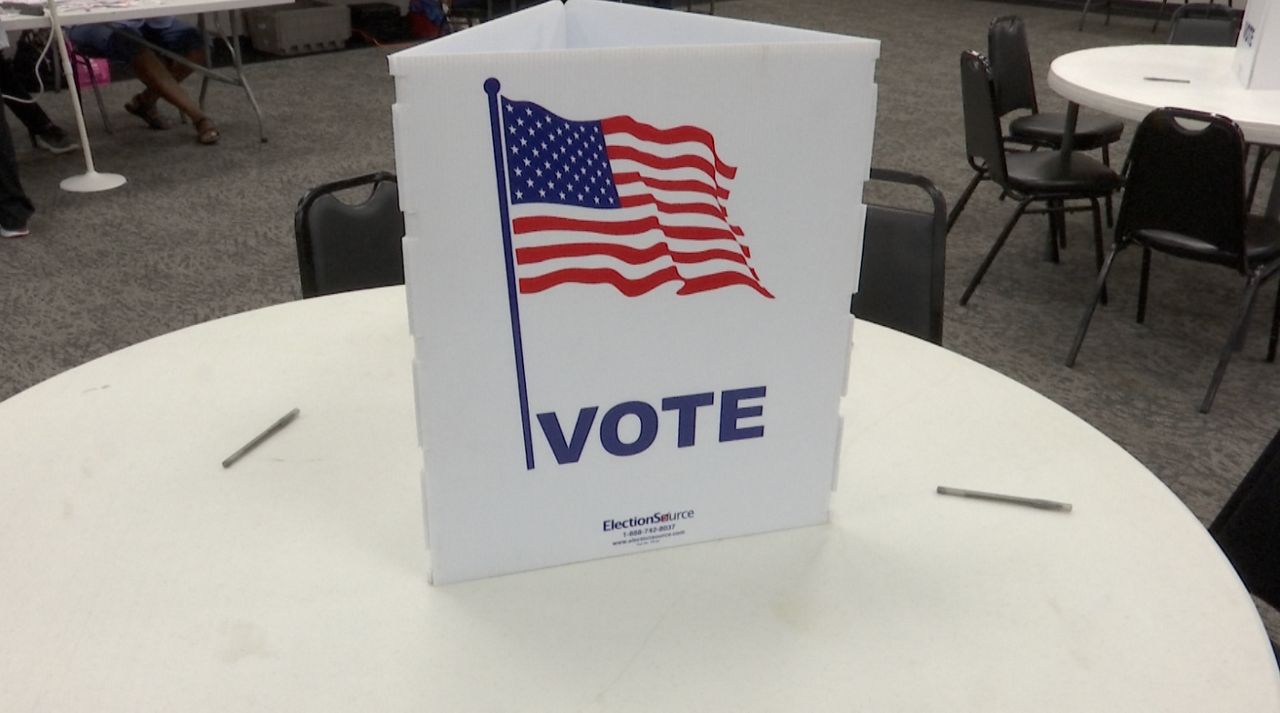LOUISVILLE, Ky. — When voters in Louisville cast ballots for the city’s next mayor in a month, they’ll have a lot of candidates to choose from.
After three terms in office, Mayor Greg Fischer cannot run for a fourth, meaning Democrats will hold a primary without an incumbent for the first time since 2010. Eight candidates are vying for the party’s nomination.
Meanwhile, four Republicans are attempting to break their party’s 53-year drought in Louisville’s mayoral election.
Here’s where the primary stands with Election Day less than a month away:
The candidates
The large field of candidates hoping to be Louisville’s next Democratic mayor includes four people who have some money, name recognition, or political experience and four relative newcomers.
The first group includes pastor Timothy Findley, Jr., businessman Craig Greenberg, community activist Shameka Parrish-Wright, and Jefferson County Circuit Clerk David Nicholson. All four have been running highly visible campaigns since last year.
The other four candidates are former police officer Skylar Graudick, restaurant worker Colin Hardin, funeral home owner Anthony Oxendine and Sergio Lopez.
The Republican primary includes Jeffersontown Mayor Bill Dieruf, minister Chartrael Hall, pastor Philip Molestina and Rob Stark Reishman.
The issues
The next mayor of Louisville will have a host of issues to contend with once they are sworn into office, but several candidates have identified the same one as the city’s most important issue: Public safety.
In each of the past two years, Louisville has set records for the number of homicides. As of the latest statistics released by the Louisville Metro Police Department, the city is poised to set a record in 2022.
Several candidates have released public safety plans with ideas meant to turn this trend around. Nicholson has proposed a new policing model focused on “struggling neighborhoods” and Greenberg wants to increase funding to LMPD. Both have endorsed doubling down on the Group Violence Initiative, which aims to cut down on violence by engaging those most likely to be affected by it.
At a recent candidate forum held by Simmons College, Parrish-Wright offered some specifics, saying she’d like to see gun buybacks, gun safety programs for children, and the expansion of a pilot program that sends mental health professionals to respond to some emergency calls.
At the same event, Findley critiqued other candidates for offering stale ideas. He said fighting gun violence relies on addressing economic insecurity in “marginalized, disinvested areas” through programs such as universal basic income, fare-free transit, and universal preschool.
Among Republicans, Dieruf has said he wants to see LMPD close its 300-officer shortfall and bring back the youth detention center that the city closed in 2019. Molestina recently said the key to reducing youth violence is getting young people “off of the streets” and into community centers and churches.
Several candidates have also discussed their plans for increasing affordable housing in Louisville, eliminating fares on the city’s public buses, and expanding educational opportunities.
The momentum
With no public polling on the mayor’s race, Dewey Clayton, a political science professor at the University of Louisville, said candidate fundraising can offer clues to where the momentum lies. As of last January’s financial deadlines, Greenberg and Dieruf held sizable leads over their counterparts. (There was a new deadline Sunday evening and new numbers should be out this week.)
“If you’ve got money, you can hire staff, knock on doors and get the word out,” Clayton said. “You can have your name everywhere.”
He said Louisvillians should expect to see candidates spending their money over the next month as they seek to increase their name recognition and win over voters. “There’s no need to save that money,” he said. “May 17 will be here very soon.”
Some are already spending. Nicholson’s campaign has produced radio and TV ads touting his experience, while Greenberg has released a TV ad centered on the most notable moment of the campaign yet — the assassination attempt he faced in February. The ad, which features Greenberg’s wife, Rachel, leans into public safety.
Without the money to spend big on advertisements, the other candidates will find themselves at a disadvantage. “Money is the mother’s milk of politics,” Clayton said.
The endorsements
So far, Greenberg has touted the most endorsements among the crowded field.
Among those supporting his candidacy are current and former members of Metro Council, labor union leaders and civil-rights icon Mattie Jones. Nicholson has also been endorsed by some local labor unions. Findley has won the endorsement of prominent Black leaders in Louisville, including Urban League President and CEO Sadiqa Reynolds and Bates Memorial Church Pastor F. Bruce Williams. Parrish-Wright, meanwhile, is endorsed by Fairness Campaign’s Political Action Committee.
The general election
On May 18, the field of 12 Democratic and Republican mayoral candidates will be narrowed to two, and Clayton said the Democrat will be in a good position to win in November. “The city, for the most part, is very Democratic,” he said.
Indeed, Democrats outnumber Republicans by more than 150,000 according to the Jefferson County Clerk’s Office.
The winner of next month’s Democratic primary will be Louisville’s next mayor, “unless something really changes,” Clayton said. And as far as who that person will be, “Greenberg is pretty much sitting in the catbird seat,” he said.



